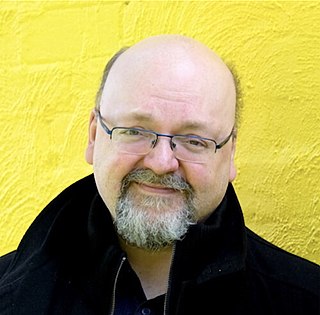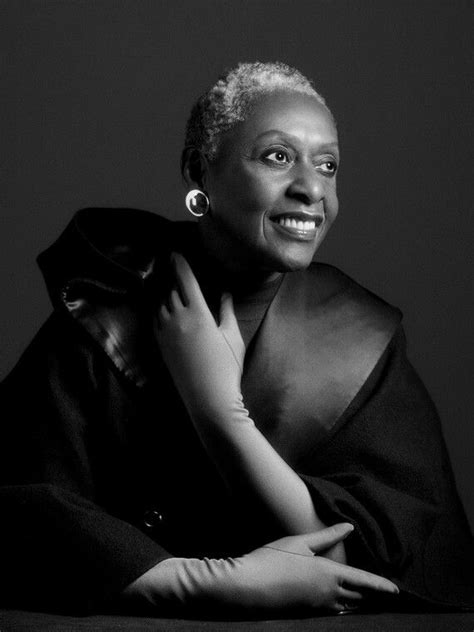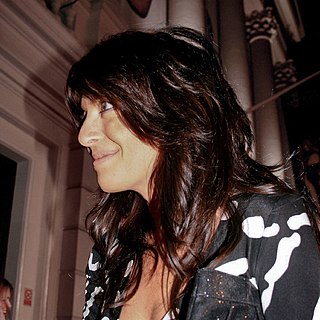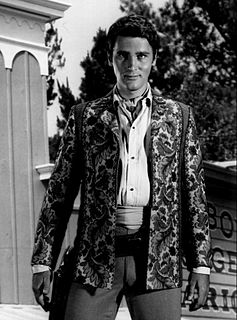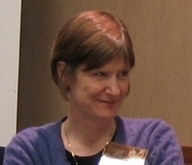A Quote by Cassandra Clare
What do you think it would have been like if Valentine had brought you up along with me? Would you have loved me?" Clary was very glad she had put her cup down, because if she hadn't, she would have dropped it. Sebastian was looking at her not with any shyness or the sort of natural awkwardness that might be attendant on such a bizarre question, but as if she were a curious, foreign life-form. "Well," she said. "You're my brother. I would have loved you. I would have...had to.
Related Quotes
She didn’t understand why it was happening,” he said. “I had to tell her she would die. Her social worker said I had to tell her. I had to tell her she would die, so I told her she was going to heaven. She asked if I would be there, and I said that I would not, not yet. But eventually, she said, and I promised that yes, of course, very soon. And I told her that in the meantime we had great family up there that would take care of her. And she asked me when I would be there, and I told her soon. Twenty-two years ago.
She had always told herself that she did hti job because she wanted to help others; afterall, hadn't Maurice told her once that the most important question any individual could ask was, "How might I serve?" If her response to that question had been pure, surely she would have coninued with the calling to be a nurse.... But that role hadn't been quite enough for her. She would have missed the excitement, the thrill when she embarked on the work of collecting clues to support a case.
The most important thing for me when I wrote [Origins] was that at the end even if Morrigan loved the player, she had this thing that she believed in, that was so important that she would do it regardless of the player. And I think that a lot of players expected that she would bend herself to do whatever they wanted because they've done the romance, gotten her approval up, and of course she would just sort of follow their destiny. But Morrigan has her own destiny.
As a child, Kate hat once asked her mother how she would know she was in love. Her mother had said she would know she was in love when she would be willing to give up chocolate forever to be with that person for even an hour. Kate, a dedicated and hopeless chocoholic, had decided right then that she would never fall in love. She had been sure that no male was worth such privation.
I was the first person that had been so kind to Iman Abdulmajid. As time went on, and she became successful, signed with an agency, when she had to make big decisions, she wouldn't always talk to an agent, she'd ask me. I'd give her good advice and she'd be on her way. When I had ideas to do things like the Black Girls Coalition, I would always talk to her, she always loved my ideas. She trusts me.
Tessa had begun to tremble. This is what she had always wanted someone to say. What she had always, in the darkest corner of her heart, wanted Will to say. Will, the boy who loved the same books she did, the same poetry she did, who made her laugh even when she was furious. And here he was standing in front of her, telling her he loved the words of her heart, the shape of her soul. Telling her something she had never imagined anyone would ever tell her. Telling her something she would never be told again, not in this way. And not by him. And it did not matter. "It's too late", she said.
This was something she would keep hidden within herself, maybe in place of the knot of pain and anger she had been carrying under her breastbone...a security blanket, an ace up her sleeve. She might never use it, but she would always feel its presence like a swelling secret stone, and that way when she let go of the rage, she would not feel nearly as empty.
There was a warmth of fury in his last phrases. He meant she loved him more than he her. Perhaps he could not love her. Perhaps she had not in herself that which he wanted. It was the deepest motive of her soul, this self-mistrust. It was so deep she dared neither realise nor acknowledge. Perhaps she was deficient. Like an infinitely subtle shame, it kept her always back. If it were so, she would do without him. She would never let herself want him. She would merely see.
She wondered whether there would ever come an hour in her life when she didn't think of him -- didn't speak to him in her head, didn't relive every moment they'd been together, didn't long for his voice and his hands and his love. She had never dreamed of what it would feel like to love someone so much; of all the things that had astonished her in her adventures, that was what astonished her the most. She thought the tenderness it left in her heart was like a bruise that would never go away, but she would cherish it forever.
Her library would have been valuable to a bibliophile except she treated her books execrably. I would rarely open a volume that she had not desecrated by underlining her favorite sections with a ball-point pen. Once I had told her that I would rather see a museum bombed than a book underlined, but she dismissed my argument as mere sentimentality. She marked her books so that stunning images and ideas would not be lost to her.
She was looking into my eyes with that way she had of looking that made you wonder whether she really saw out of her own eyes. They would look on and on after every one else's eyes in the world would have stopped looking. She looked as though there were nothing on earth she would not look at like that, and really she was afraid of so many things.
Audrey, it seems to me, never strove or hoped to leave a lasting legacy with her films - she was far too modest for that. But what I think she would have wanted, had she been given more time, would have been to continue her work for children because she knew that is a task with so much to be accomplished.
And you're not leaving," she said. "Promise me." It was as if she had asked him to promise to keep breathing, to notice sunshine, to permit the spinning of the earth. What choice did he have? Even if he left her, she would be camped in his heart, an insistent and willful presence. She would match her strides to his on any journey he ever took; she would lie beside him on any bed. Amalie, he said, "that's the easiest promise I've ever had to make.



